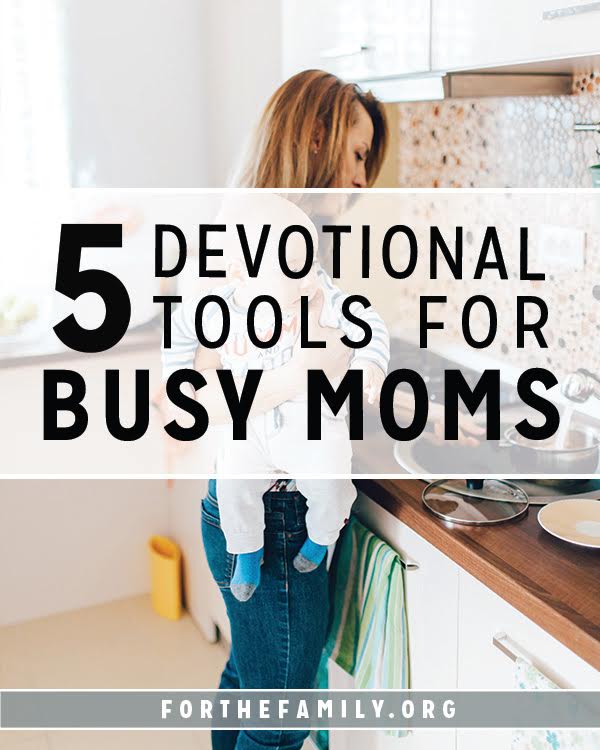Being Married to Someone Who Doesn’t Care
Jason and Maria have been together for 15 years, and it has taken Jason that long to realize that he and his wife’s vision of a successful marriage are worlds apart.
What do you do when you finally realize the marriage you want to work for is a marriage your spouse doesn’t want or won’t work for?
Though it’s often the wife who seems more relational, in this case Jason is the one who desires more soulful discussions and a commitment to work on the relationship. Maria says she wants that, too, but the only talk she initiates is about surface things: decorating the house, what the kids need done, or something her mother told her. She never asks Jason how he’s doing, what he’s feeling, or how he thinks the relationship is going—even though he has repeatedly expressed his desire that she do that.
It doesn’t take a Ph.D. in therapy to know that Jason desires a certain level of intimacy that Maria doesn’t. Maria is willing to live on the surface. As long as she and Jason do “fun” things (according to Maria’s definition) and take care of the house and family, she’s happy in her marriage. The fact that Jason isn’t happy with that doesn’t seem to bother her—at least, not enough to make her do anything about it.
One of the challenges in such a situation is that “fixing” a relationship isn’t like fixing a car. A relationship between two individuals requires cooperation. Ideally, Jason’s desire to go deeper would be enough to motivate her. Those are legitimate desires that most wives would welcome. But apparently Jason’s pain isn’t Maria’s pain; it’s not enough motivation for Maria to change.
What I admire about Jason is that, while recognizing all this, he is still engaged in the marriage. He realizes that God doesn’t call us to love and be faithful only to unselfish spouses. In fact, Jesus specifically says that He excels in loving the “ungrateful and wicked” (Luke 6:32-35) and tells us to love just as He loves (v. 36). Later in that same passage, Jesus adds, “Give and it will be given to you,” but He doesn’t say the person doing the giving will be your spouse.
If we love out of reverence for God, we will receive God’s comfort. Giving to get is the world’s view of love, but it’s not Christ’s.
Those are my theoretical words, but here is Jason’s real-life response in answer to my question:
What do you do when you realize that your spouse isn’t going to meet legitimate needs?
1. Get the needs met secondarily, through appropriate channels.
For Jason, this means building rich relationships with others, though not with women on their own. It’s not ideal, but it helps. Jason has some solid friendships with guys, and he and Maria have some solid couple relationships. Though Jason wouldn’t meet any of the wives on their own, he finds that sometimes he can initiate couple-related conversations with another couple that Maria might engage in. He has to be the one who is intentional about this, as Maria won’t seek it on her own.
2. Remember someone has it worse.
Jason has a friend whose wife left him after 12 years of marriage. This guy, according to Jason, is “as solid as they come.” Even so, because of the separation and subsequent divorce, it has been two years since he has had sex. “I can’t say I’m happy with where Maria and I are at sexually,” Jason admits. “At most, we have sex once a week or so. But I can’t even imagine going two years, so I try to be thankful for what I have rather than focus too much on what I don’t.” By remaining bitter, Jason would risk taking a frustrating marriage and making it even worse. Sadly, that’s what many disappointed spouses often do.
3. Choose to dwell on the positive, however limited and imperfect it may be.
Jason lives by Philippians 4:8: “Finally brethren, whatever is true, whatever is honorable, whatever is right, whatever is pure, whatever is lovely, whatever is of good repute, if there is any excellence and if anything worthy of praise, dwell on these things.” Jason emphasized the last phrase, “dwell on these things.” “You don’t want to consistently talk or even pray your marriage down,” he warns. “Focus on the strengths, build on the strengths, and thank God for what you do have.”
In one sense, if your spouse is emotionally stunted, you must do what the spouse of a physically disabled spouse must do. While you might really enjoy walks along the beach, if your spouse is in a wheelchair or recovering from a stroke, that might not happen. But instead of being resentful, you do your best to create opportunities that you can enjoy.
This may sound frustrating and even depressing to some of you who were hoping I’d give you three keys to “fix” your marriage, but here’s reality: never letting go of your frustration with something that is never going to change is a recipe for bitterness and estrangement, not a happy life.
You can make your marriage even worse than it already is, or you can seek to enjoy what aspects of it that you can. Philippians 4:8 is, I believe, a brilliant invitation to making the most of what you have.
Blessings,
Gary








A thought-provoking read on a subject that often troubles me. Thank you, Gary. I really appreciate you talking about this. So often I hear that a successful marriage is made up of two givers…or two forgivers…or TWO anything! But it always tugs at my heart strings because I think there are plenty of couples (including my husband and I) who are not quite so equally matched, especially on levels of emotional connectedness. Thanks for the encouragement to focus on the good. (Pinning!)
Thanks for discussing about it……In my case,I’m at Jason ‘ s side……my husband really only wants to talk on the surface things. But I want to ask you something,if I response at number 1, Get the needs met secondarily…..
I already make a relationship with many friends….,but many of them are men….because I get comfortable to talk with man rather than a woman…(.And my husband and I didn’t have some solid couple relationship….He was too busy to make friends together with me.)…..I know it’s not an appropiate channels…But it really helps me …..I need your advice…maybe privately….
Ruth, I think this is a dangerous place to be, particularly if your husband isn’t meeting your emotional needs. It make sound like the ultimate “Catch 22”, but it’s safer for a woman to have closer male friends when she’s emotionally bonded with a reciprocal husband. I think this calls for deeper honesty and vulnerability with your husband: “Look, we don’t often have the ‘deeper’ talks I’d like to have, and I know you don’t particularly enjoy them, but that’s why we need to make the time to have couples who are friends. I’m asking you to do this for me–it’s safer. I don’t want to have male friends without you, but that means you need to be willing to make friends with me.” If you’re vulnerable and honest, your husband may be more open to making more of an effort. He doesn’t see it as his own need yet, but he MAY see it that way if he realizes that’s part of protecting his marriage. Then it BECOMES a need of his. No guarantees here–that’s how relationships work–but I wouldn’t just “give in” to an unhealthy pattern of relating.
Thank you for the wisdom. This is one of those things that could save marriages and reduce the number of divorces by encouraging unequally yoked couples who love each other in ways that are are not what each expected from each other. God bless
“This may sound frustrating and even depressing to some of you”. Yes it does! As a wife, I am the Jason in our marriage. And suggestion 1 is out, since my husband discourages any friendships I try to make. He is so insecure that whenever I spend time with anyone else, he assumes I am lying and going to cheat on him. I would not mind so much persevering through and trying to “love” him anyway (although there is a lot of resentment there) if it were not for our children. My fear over them seeing and thinking this is what a marriage is supposed to look like, along with his lack of interest in any REAL parenting kills me.
I found it amusing that Jason was the one initiating emotional connection. As echoed in most of the replies here, it’s us wives who can relate to Jason. It’s the same in my marriage. My husband is a good man and a great provider. But really knowing and being known remains a dream for me. While we can talk for hours about anything that interests him (most of the time things I’ve developed a liking for in an effort to have more meaningful conversations), any serious talk outside of those interests just doesn’t get anywhete. It’s not so much that he doesn’t care. I get the feeling that he feels there’s nothing to fix. It’s a very lonely place to be when you can’t express your deep emotional needs and wonder if you will ever get there.
You’re right, of course–it’s far more commonly women who are frustrated with their husbands in this regard than the other way around. I was just being true to “Jason” (not his real name) and his real-life situation.
Can totally relate to this. Lonely is the perfect description. And when I voice my frustrations and feelings he doesn’t understand why I am lonely. He does not see the need in having those deeper than the surface conversations. Its very difficult for me to make friendships with other women and I do not feel comfortable having male friends without him. The only couple friendship we have is his best friend for 20 + years. *sigh*
This article is very helpful as o struggle with a negative, selfish husband. I can do these things . . My only question is what about when it affects the kids? I have the same fear Jennifer Johnson does and its heart wrenching.
This is why I’ve been devoted to helping singles consider these qualities before they get married. But after the fact, though this may sound simplistic I think it’s all you can do: if you can’t give your children two godly parents, give them one. Go out of your way to model godly affection so they can see the difference. You can’t force a spouse to change but you can always demonstrate a difference. Not easy words to hear but what other option is there? Of course you keep praying and putting your hope in God, but until conviction arises we have to focus on ourselves
This is such a hard place to be, and I think giving practical advice is amazing, because many spouses in this situation feel helpless and hopeless. Sometimes it is not that the other spouse doesn’t care, but that he has no idea how to do what it is you are asking him, or he is afraid of the emotional risk. Other times they are truly too selfish to reach out in any way.
I do think that there is hope, even in this hopeless seeming situation. We need to remember that as God works in our hearts and lives, helping us grow in him, he is also at work in our spouses lives. Whether we can see it or not. Often our timetables of growth do not match up, not even close. But God hasn’t given up on our spouse. I have seen evidence of this over and over again in my marriage. So many times I have wrung my hands, lamented and moaned, even given up. But we press on, giving our marriage to God, sharing with close friends, seeking fulfillment in God and someday, maybe 15 years down the road, we cry in amazement as we see evidence of the fruit that God is bringing in our spouse’s life.
In our 20 years, I have often chosen selfishness in response to selfishness. This has resulted in more brokenness and bitterness, not in the desired engagement. But we have committed to one another and to God, and I am constantly in awe at the way God works in our marriage, and the changes in attititude and the forgiveness and healing he has brought to both of us. With God, there is hope. And there is joy, no matter what our circumstance.
This is an amazingly beautiful, godly reply, that breathes authentic faith with every syllable. Bless you. Some day in eternity, your husband is going to be overwhelmed when he sees the glory of the woman he was married to on earth.
I think that was the best compliment anyone could give someone. Very well said
I think I’m the Maria in my marriage 🙁 I am not sure what holds me back from real intimacy but I know my husband wants more of me emotionally and I don’t know how to give it. I’m seeking God’s wisdom (like He had to have guided me to this article) through His word and prayer, and I really desire to go deeper, but then I tend to freeze up and shy away from it. I want to please my husband though! I want to be the best wife and helper I can be, but I don’t know why I always mess it up when it comes to emotional stuff and intimacy. He deserves all of me and he is so affectionate and I’m just not. This is hard! I’ve never even admitted this to anyone.
Lori, you are SO CLOSE to turning a new chapter in your marriage–but it’s clear you need a little help. It sounds to me like you’re a prime candidate to talk with a counselor about issues in your past that could be hindering you–issues you’re not even aware of. Your reply represents exactly the kind of situation and attitude a counselor can work with best: someone who knows what they are doing isn’t ideal, someone who wants to make a change, but also someone who doesn’t really know what’s holding them back. Maybe this post was written just for you, to bring the issue to the surface, get you to mention it for the first time and then to take the next courageous step and let an experienced Christian counselor unlock the “you” you want to get out and share with your husband.